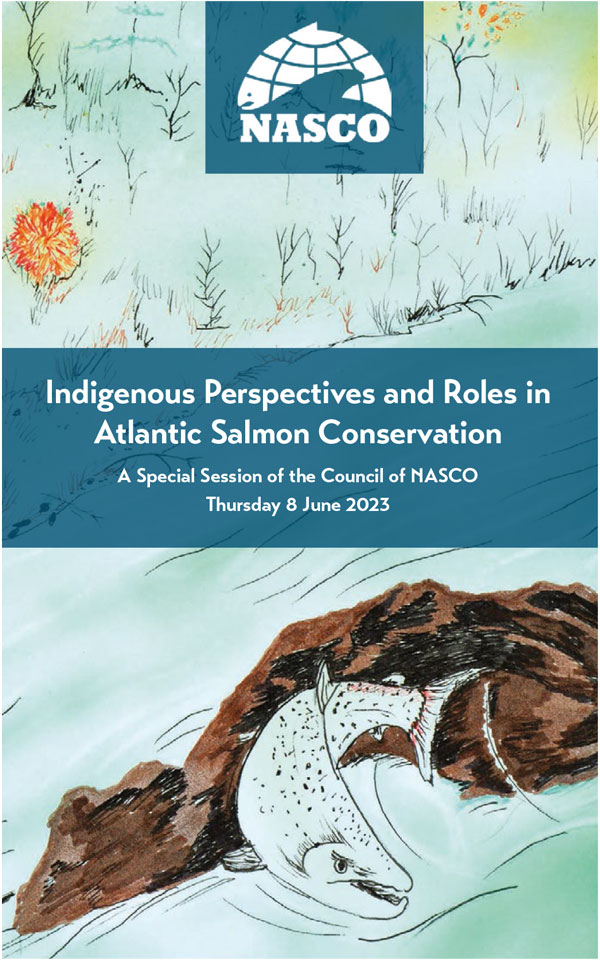Indigenous Perspectives and Roles in Atlantic Salmon
One of the recommendations arising from NASCO’s 2019 IYS Symposium held in Tromsø, Norway, was:
‘Recognizing the importance of salmon to indigenous peoples and the role that indigenous peoples play in salmon conservation, NASCO should improve the participation of indigenous people in NASCO’

The Council of NASCO concluded that this recommendation was a priority and should be acted on urgently. During its 2023 Annual Meeting, Council held a three-hour Special Session titled ‘Indigenous Perspectives and Roles in Atlantic Salmon Conservation’ which brought together nine Indigenous guest speakers and panellists from North America and Europe. The objective was to launch a dialogue between NASCO and Indigenous peoples by increasing NASCO delegates’ understanding of Indigenous peoples’ connections to, and experience with, wild Atlantic salmon, including the legal, social, cultural and governance challenges that they face in their respective regions.
A common message from all the Indigenous speakers was to emphasise that partnering with Indigenous peoples and including them in discussions is an essential and necessary element, not only for the future preservation of wild Atlantic salmon, but for the future success of NASCO as a conservation organization. The report of the Steering Committee responsible for organizing the Special Session can be found here.
Following the Special Session, the Parties to NASCO recognised the need to consult with Indigenous peoples in their own jurisdictions, where appropriate, and were supportive of a process to enable Indigenous peoples to participate more fully in the work of NASCO.
As the next steps in this process, Council agreed that the Parties would consider a proposal put forward by Canada to deepen the engagement of Indigenous peoples, including the creation of a new observer category (see CNL(23)72 for further details on the proposal) and asked the FAC to consider whether and how the ‘Conditions for Attendance by Observers at NASCO Meetings’, CNL(06)49, could be updated to accommodate Indigenous participants in a manner that appropriately recognises their interest in the work of NASCO and the value their strengthened engagement would bring.
The FAC has considered this inter-sessionally and Council will consider this matter further at its 2024 Annual Meeting.